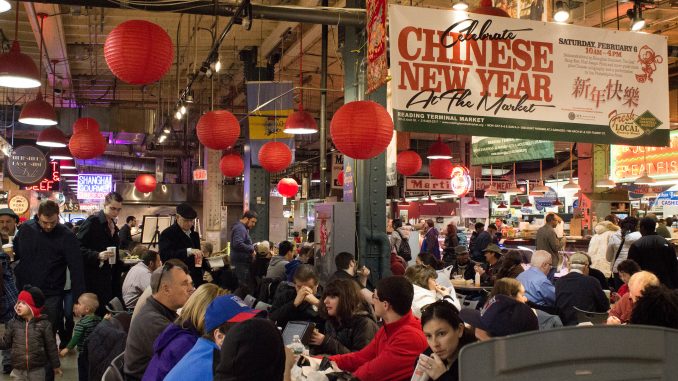
Tongtong Huang would often ring in the Chinese New Year decked out head-to-toe in crimson clothes—right down to her underwear. Red is he color of the Chinese New Year, or Spring Festival, which was welcomed by countries all over the world yesterday.
The senior finance major intends to spend this Chinese New Year in red once again, while making dinner with her friends to celebrate.
“If I’m in China, I can feel all of the people around me are really excited about [the Chinese New Year],” she said. “These days, I have a lot of homework, readings and exams, so I don’t have time to realize it’s coming.”
“The Spring Festival is the most important holiday in China, it’s so important to see your family [during] this time,” Huang added.
There is a 12-year cycle of the lunar months around which the Chinese calendar revolves. Each year is represented by a different animal. The Chinese Year of the Monkey begins in this Gregorian year of 2016.
Temple’s Chinese Club celebrated the Year of the Monkey on Sunday with an event in the Student Center. Chinese students in the club taught American students how to make dumplings and they screened a movie about the Spring Festival, while also broadcasting a live-feed of the Super Bowl.

“By having the Chinese members teach the American students how to make dumplings, we’re hoping to get stronger ties between club members that way,” said Nick Wilson, a senior math major and the club’s president.
The Confucius Institute, which opened earlier this year, added faculty from China’s Zhejiang Normal University and strive to expand Temple’s programs about Chinese language and culture.
Benjamin Zeng, a professor and Chinese director of the Confucius Institute, said families will spend thousands of dollars to fulfill another Chinese tradition: setting off firecrackers.
Specific foods and traditions differ based on the religion or family in China. Zeng’s family usually ate taro foods to celebrate the new year, because they symbolize good things, like richness and prosperity in life.
“We also eat fish—which [means] surplus,” he said. “If you eat fish, you could have surplus in your budget for the next year. It’s all for good wish.”
Chinese New Year has specific customs that are often carried out by those who celebrate. Before the new year, there is extensive cleaning of the homes so that the bad luck can be cleaned away to welcome in the new year, Zeng said. Families usually go home to celebrate the new year together, and it has been called the largest annual human migration, with 2.9 billion people trying to get home to see their families, according to the BBC News.
Another custom that is common in China for the celebration of the new year is the gifting of red envelopes, or red packets filled with money and given as gifts. Because many international students will not be attending the festivities with their families, there are now virtual red packets that can be sent through the ‘WeChat’ app.
Xueming Guo, a junior management information system and human resources management major, said this is her third Chinese New Year away from home. To celebrate, Guo said she would eat dinner with her friends and go to a karaoke event in Chinatown.
“Normally in the past … it would feel like, ‘Wow, the new year is really coming,’” Guo said. “I want to go back in my childhood, because I really liked the New Year festival then.”
Despite missing out on another festival in China, Guo said she isn’t going to miss it only for the celebrations.
“It’s not about Spring Festival,” she said. “I miss home every day.”
Gillian McGoldrick can be reached at gillian.mcgoldrick@temple.edu.
Editor’s note: Emily Rolen, the editor-in-chief of The Temple News, is a member of the Chinese Club. She played no role in the reporting of the story.


Be the first to comment